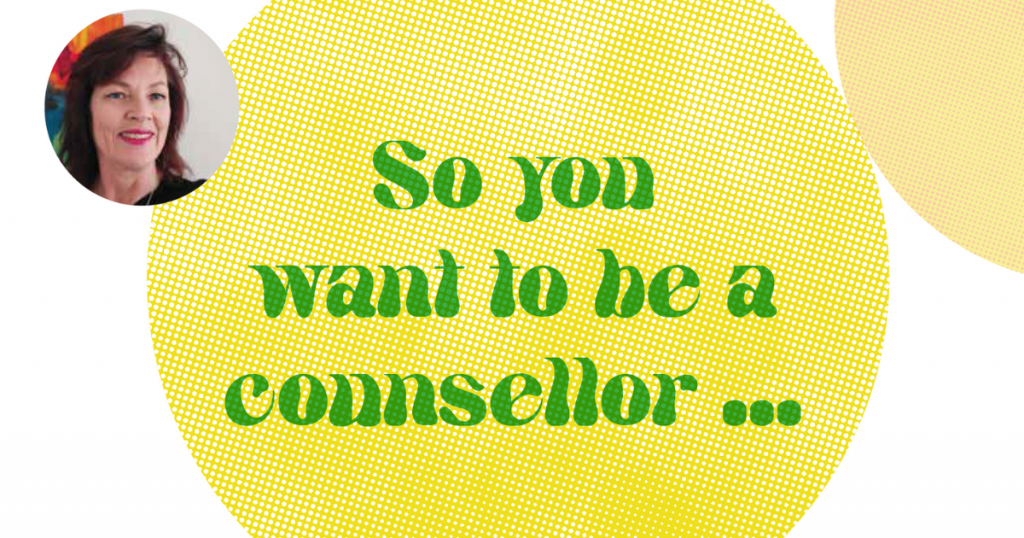Professional Advice: So you want to be a Counsellor…. Part 1
In this new series, counsellors share with ACA their professional journeys and the things they have learnt along the way. As featured in the Counselling Australia Journal Spring 2022, Volume 23 Number 3.
Janina King, counsellor, clinical transport officer and crisis support worker, tells ACA what she wishes she knew in the prelude to her career.

Tell us about your work. Do you love your work? Why? How do you describe the work that you do?
I have multiple roles across several platforms. They all are about uplifting others. I get a kick out of caring for, and supporting, people in crisis. I bring my healing presence to the situation, along with extensive life experience, and I listen and provide. I look at things from a broad perspective, knowing that by the time a crisis has arrived, there are many components at play that led a person to that point.
I am trauma-informed. Most people seeking support are traumatised somehow, and I believe in always ‘being there’ for a person. So many people have been left to feel abandoned and that no one is listening. Listening deeply is profoundly important and such a gift. Trauma training allows me to function as a catalyst to reduce another’s distress. I aim to ensure every person feels I am ‘there’ for them and will not abandon them. This is more important than knowing things. I operate from the belief that all people have their own answers for themselves. I am simply the catalyst for exploration, discovery and change.
In my ambulance role, even though it is a ‘physical’ response to medical events, heart rates can lower with just comfort and care. I have seen cardiac arrests caused by a stressful, scary event. I believe that really caring about another can cause huge positive change. Humans can feel if you care. As I am trained in the medical sphere, as well as exercise physiology, I bring this knowledge into the space when I am counselling someone. It allows me to view a person’s presentation from a holistic perspective.
I have ended up – purely by default – becoming something of a specialist in the WorkCover space. I have had to design my own processes for this, and to combine my counselling skills and my knowledge of the WorkCover system and health issues with an expert caring legal team for great outcomes for clients. I am still carving out my place in this space as it is unchartered territory.
Looking back to your final year as a student (before starting your counselling career), what are the top three pieces of advice you would give?
I would say: always keep learning, forever. Every person you will ever meet is an opportunity to learn about how people are unique, different and mysterious. Be kind, be gentle – including to yourself. Approach everyone with curiosity and interest. If you care, and engage authentically, you are off to a great start.
We may have an idea in our mind of where we are going, but life may offer you other opportunities of which you had never thought. It turns out I am effective in the medico-legal space, and that was never on my radar as something of interest.
Work on yourself always. Apply what you learn to yourself. See what you discover. Get to know yourself and keep growing. Find supports who believe in you.
Imagine yourself entering your first counselling session as a qualified counsellor. What is the knowledge or advice you wish you had had?
Have a basic structure of what you would like to explore. For example, in my couples counselling I follow the Gottman template for gathering a baseline of information to get an overview. In my individual counselling, I collect mental, physical, medical and social information to gain as complete a picture as I can to work from. Be curious, interested and always care for you first – you can’t provide diligent care if you are not caring for you. Check in with yourself before and after work, every time.
Would you change your decision to become a counsellor or psychotherapist? Why?
I have taken many years and a journey to get to this point. For me, it’s a natural progression to be here. I follow what I find intriguing and engaging, and I go where what I bring is wanted. There is endless scope in this field, so the sky is the limit.
What is your definition of counselling?
Well, I don’t like to define things too definitively as I find it limiting. But, if I had to, I might say something like, it is about bringing oneself as a healing presence to a conversation with a person, caring about them, and exploring what’s going on. It is about listening deeply, exploring difficulties and the human experience, and being a catalyst for peace and insight. Ultimately, we all want to feel good.



